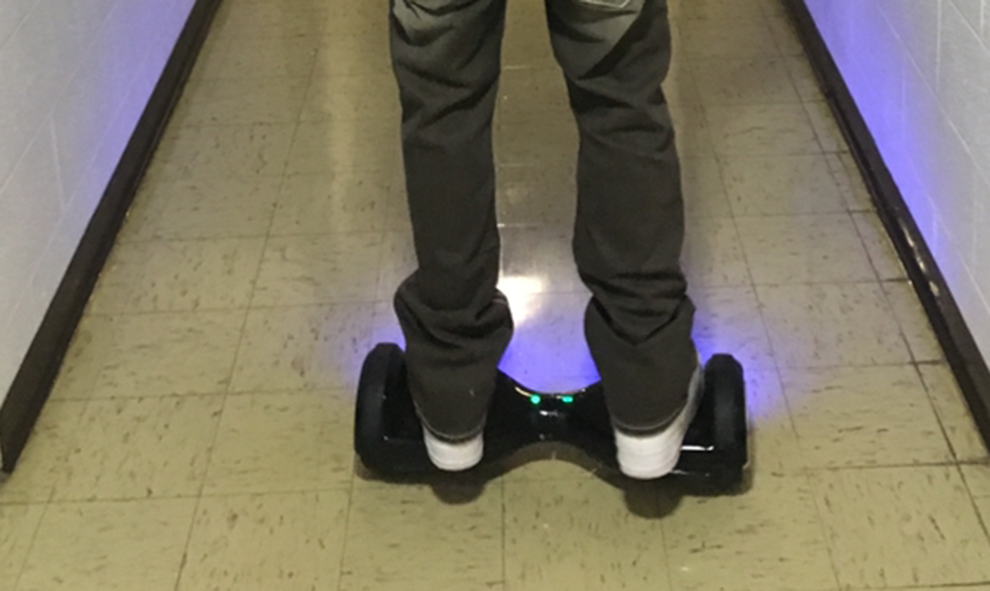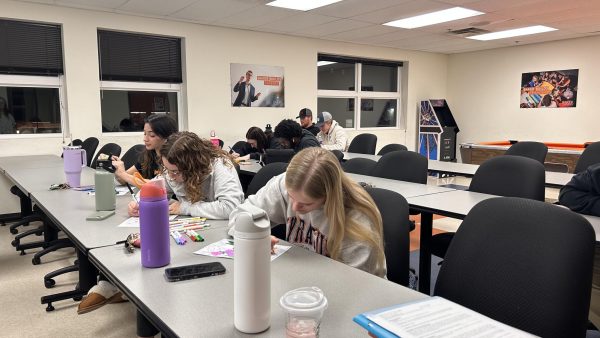Not on board: New policy bans hoverboards
February 4, 2016
Hoverboards. Segways without handles. Self-balancing boards. Whatever you call them, they are no longer allowed on Baker University property, including residences and campus sidewalks. Before the start of the spring semester, Dean of Students Cassy Bailey sent an email notifying students that they will have to leave their new gadgets at home before returning to campus.
Bailey has only heard of a few hoverboards being on campus, but she believes some places where they have been seen, like the dining hall and library, are not safe spaces for them, especially in crowded areas.
“It is better to be preemptive than to be reactive,” Bailey said.
While only one official complaint has been made about the boards in the past, the university is banning the motorized boards primarily for safety concerns.
Hoverboards have grown in popularity and, in turn, more injuries and general safety issues have surfaced, from users falling off of them and injuring their backs to the boards suddenly exploding. The latter is mostly caused by the lithium batteries becoming over-stressed or over-charged, causing them to explode or catch fire. While injuries and risks around these machines are coming into the spotlight, deaths from these boards are extremely rare.
The National Association of State Fire Marshals released a warning about several instances of hoverboard-like devices catching fire while being used and while charging.
Students on campus seem to have accepted the new policy and support the administration in their decision.
“I saw a lot of videos about them malfunctioning,” junior Amber Stubbs said. “I think it’s a good rule to have. They are a safety hazard.”
Senior Kelsey Vollenweider thinks that the safety of hoverboards on campus should be allowed, but the owners should be held accountable for them.
“I think it should be up to the people who have them,” Vollenweider said. “They should have to sign an agreement and be smart with them.”
A few students offer a different opinion on the matter.
“It’s dumb because there’s nothing unsafe about them, unless you’re uncoordinated,” junior Kharon Brown said. “You see all these videos of people falling, but it’s like learning to ride a bike. They don’t even go fast. If we can ride a bike on campus, we should be able to ride a hoverboard.”
Baker has joined the ranks of colleges across the nation that have banned the boards in resident halls and university buildings for safety and insurance reasons. Currently, more than 30 colleges have banned hoverboards and others, such as the University of Kansas, have placed partial bans on them. Because of concerns for pedestrian safety and city laws, KU has restricted the use of these boards on and around Jayhawk Boulevard.
The University of Missouri has placed a full ban on all hoverboards. Other universities have placed temporary bans, hoping that within a few months the issues concerning the boards will be resolved and they can re-evaluate the ban.
Bailey said that this is a possibility for Baker, as well. Baker’s hoverboarding students can hold on to that hope that one day they may be able to board across campus once again. Until then, administrators urge students to leave the boards at home.












